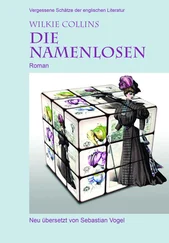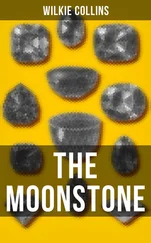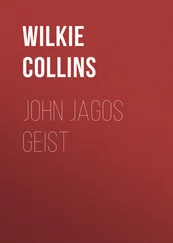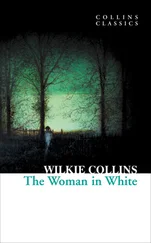Wilkie Collins - The Lazy Tour of Two Idle Apprentices
Здесь есть возможность читать онлайн «Wilkie Collins - The Lazy Tour of Two Idle Apprentices» весь текст электронной книги совершенно бесплатно (целиком полную версию без сокращений). В некоторых случаях можно слушать аудио, скачать через торрент в формате fb2 и присутствует краткое содержание. Жанр: Классическая проза, на английском языке. Описание произведения, (предисловие) а так же отзывы посетителей доступны на портале библиотеки ЛибКат.
- Название:The Lazy Tour of Two Idle Apprentices
- Автор:
- Жанр:
- Год:неизвестен
- ISBN:нет данных
- Рейтинг книги:5 / 5. Голосов: 1
-
Избранное:Добавить в избранное
- Отзывы:
-
Ваша оценка:
- 100
- 1
- 2
- 3
- 4
- 5
The Lazy Tour of Two Idle Apprentices: краткое содержание, описание и аннотация
Предлагаем к чтению аннотацию, описание, краткое содержание или предисловие (зависит от того, что написал сам автор книги «The Lazy Tour of Two Idle Apprentices»). Если вы не нашли необходимую информацию о книге — напишите в комментариях, мы постараемся отыскать её.
The Lazy Tour of Two Idle Apprentices — читать онлайн бесплатно полную книгу (весь текст) целиком
Ниже представлен текст книги, разбитый по страницам. Система сохранения места последней прочитанной страницы, позволяет с удобством читать онлайн бесплатно книгу «The Lazy Tour of Two Idle Apprentices», без необходимости каждый раз заново искать на чём Вы остановились. Поставьте закладку, и сможете в любой момент перейти на страницу, на которой закончили чтение.
Интервал:
Закладка:
There was a pewter inkstand on the chimney-piece, with some mildewed remains of ink in the bottle. There were two coarse china ornaments of the commonest kind; and there was a square of embossed card, dirty and fly-blown, with a collection of wretched riddles printed on it, in all sorts of zig-zag directions, and in variously coloured inks. He took the card, and went away, to read it, to the table on which the candle was placed; sitting down, with his back resolutely turned to the curtained bed.
He read the first riddle, the second, the third, all in one corner of the card—then turned it round impatiently to look at another. Before he could begin reading the riddles printed here, the sound of the church-clock stopped him. Eleven. He had got through an hour of the time, in the room with the dead man.
Once more he looked at the card. It was not easy to make out the letters printed on it, in consequence of the dimness of the light which the landlord had left him—a common tallow candle, furnished with a pair of heavy old-fashioned steel snuffers. Up to this time, his mind had been too much occupied to think of the light. He had left the wick of the candle unsnuffed, till it had risen higher than the flame, and had burnt into an odd pent-house shape at the top, from which morsels of the charred cotton fell off, from time to time, in little flakes. He took up the snuffers now, and trimmed the wick. The light brightened directly, and the room became less dismal.
Again he turned to the riddles; reading them doggedly and resolutely, now in one corner of the card, now in another. All his efforts, however, could not fix his attention on them. He pursued his occupation mechanically, deriving no sort of impression from what he was reading. It was as if a shadow from the curtained bed had got between his mind and the gaily printed letters—a shadow that nothing could dispel. At last, he gave up the struggle, and threw the card from him impatiently, and took to walking softly up and down the room again.
The dead man, the dead man, the hidden dead man on the bed! There was the one persistent idea still haunting him. Hidden? Was it only the body being there, or was it the body being there, concealed, that was preying on his mind? He stopped at the window, with that doubt in him; once more listening to the pattering rain, once more looking out into the black darkness.
Still the dead man! The darkness forced his mind back upon itself, and set his memory at work, reviving, with a painfully-vivid distinctness the momentary impression it had received from the first sight of the corpse. Before long the face seemed to be hovering out in the middle of the darkness, confronting him through the window, with the paleness whiter, with the dreadful dull line of light between the imperfectly-closed eyelids broader than he had seen it—with the parted lips slowly dropping farther and farther away from each other—with the features growing larger and moving closer, till they seemed to fill the window and to silence the rain, and to shut out the night.
The sound of a voice, shouting below-stairs, woke him suddenly from the dream of his own distempered fancy. He recognised it as the voice of the landlord. ‘Shut up at twelve, Ben,’ he heard it say. ‘I’m off to bed.’
He wiped away the damp that had gathered on his forehead, reasoned with himself for a little while, and resolved to shake his mind free of the ghastly counterfeit which still clung to it, by forcing himself to confront, if it was only for a moment, the solemn reality. Without allowing himself an instant to hesitate, he parted the curtains at the foot of the bed, and looked through.
There was a sad, peaceful, white face, with the awful mystery of stillness on it, laid back upon the pillow. No stir, no change there! He only looked at it for a moment before he closed the curtains again—but that moment steadied him, calmed him, restored him—mind and body—to himself.
He returned to his old occupation of walking up and down the room; persevering in it, this time, till the clock struck again. Twelve.
As the sound of the clock-bell died away, it was succeeded by the confused noise, down-stairs, of the drinkers in the tap-room leaving the house. The next sound, after an interval of silence, was caused by the barring of the door, and the closing of the shutters, at the back of the Inn. Then the silence followed again, and was disturbed no more.
He was alone now—absolutely, utterly, alone with the dead man, till the next morning.
The wick of the candle wanted trimming again. He took up the snuffers—but paused suddenly on the very point of using them, and looked attentively at the candle—then back, over his shoulder, at the curtained bed—then again at the candle. It had been lighted, for the first time, to show him the way up-stairs, and three parts of it, at least, were already consumed. In another hour it would be burnt out. In another hour—unless he called at once to the man who had shut up the Inn, for a fresh candle—he would be left in the dark.
Strongly as his mind had been affected since he had entered his room, his unreasonable dread of encountering ridicule, and of exposing his courage to suspicion, had not altogether lost its influence over him, even yet. He lingered irresolutely by the table, waiting till he could prevail on himself to open the door, and call, from the landing, to the man who had shut up the Inn. In his present hesitating frame of mind, it was a kind of relief to gain a few moments only by engaging in the trifling occupation of snuffing the candle. His hand trembled a little, and the snuffers were heavy and awkward to use. When he closed them on the wick, he closed them a hair’s breadth too low. In an instant the candle was out, and the room was plunged in pitch darkness.
The one impression which the absence of light immediately produced on his mind, was distrust of the curtained bed—distrust which shaped itself into no distinct idea, but which was powerful enough in its very vagueness, to bind him down to his chair, to make his heart beat fast, and to set him listening intently. No sound stirred in the room but the familiar sound of the rain against the window, louder and sharper now than he had heard it yet.
Still the vague distrust, the inexpressible dread possessed him, and kept him to his chair. He had put his carpet-bag on the table, when he first entered the room; and he now took the key from his pocket, reached out his hand softly, opened the bag, and groped in it for his travelling writing-case, in which he knew that there was a small store of matches. When he had got one of the matches, he waited before he struck it on the coarse wooden table, and listened intently again, without knowing why. Still there was no sound in the room but the steady, ceaseless, rattling sound of the rain.
He lighted the candle again, without another moment of delay and, on the instant of its burning up, the first object in the room that his eyes sought for was the curtained bed.
Just before the light had been put out, he had looked in that direction, and had seen no change, no disarrangement of any sort, in the folds of the closely-drawn curtains.
When he looked at the bed, now, he saw, hanging over the side of it, a long white hand.
It lay perfectly motionless, midway on the side of the bed, where the curtain at the head and the curtain at the foot met. Nothing more was visible. The clinging curtains hid everything but the long white hand.
He stood looking at it unable to stir, unable to call out; feeling nothing, knowing nothing, every faculty he possessed gathered up and lost in the one seeing faculty. How long that first panic held him he never could tell afterwards. It might have been only for a moment; it might have been for many minutes together. How he got to the bed—whether he ran to it headlong, or whether he approached it slowly—how he wrought himself up to unclose the curtains and look in, he never has remembered, and never will remember to his dying day. It is enough that he did go to the bed, and that he did look inside the curtains.
Читать дальшеИнтервал:
Закладка:
Похожие книги на «The Lazy Tour of Two Idle Apprentices»
Представляем Вашему вниманию похожие книги на «The Lazy Tour of Two Idle Apprentices» списком для выбора. Мы отобрали схожую по названию и смыслу литературу в надежде предоставить читателям больше вариантов отыскать новые, интересные, ещё непрочитанные произведения.
Обсуждение, отзывы о книге «The Lazy Tour of Two Idle Apprentices» и просто собственные мнения читателей. Оставьте ваши комментарии, напишите, что Вы думаете о произведении, его смысле или главных героях. Укажите что конкретно понравилось, а что нет, и почему Вы так считаете.











